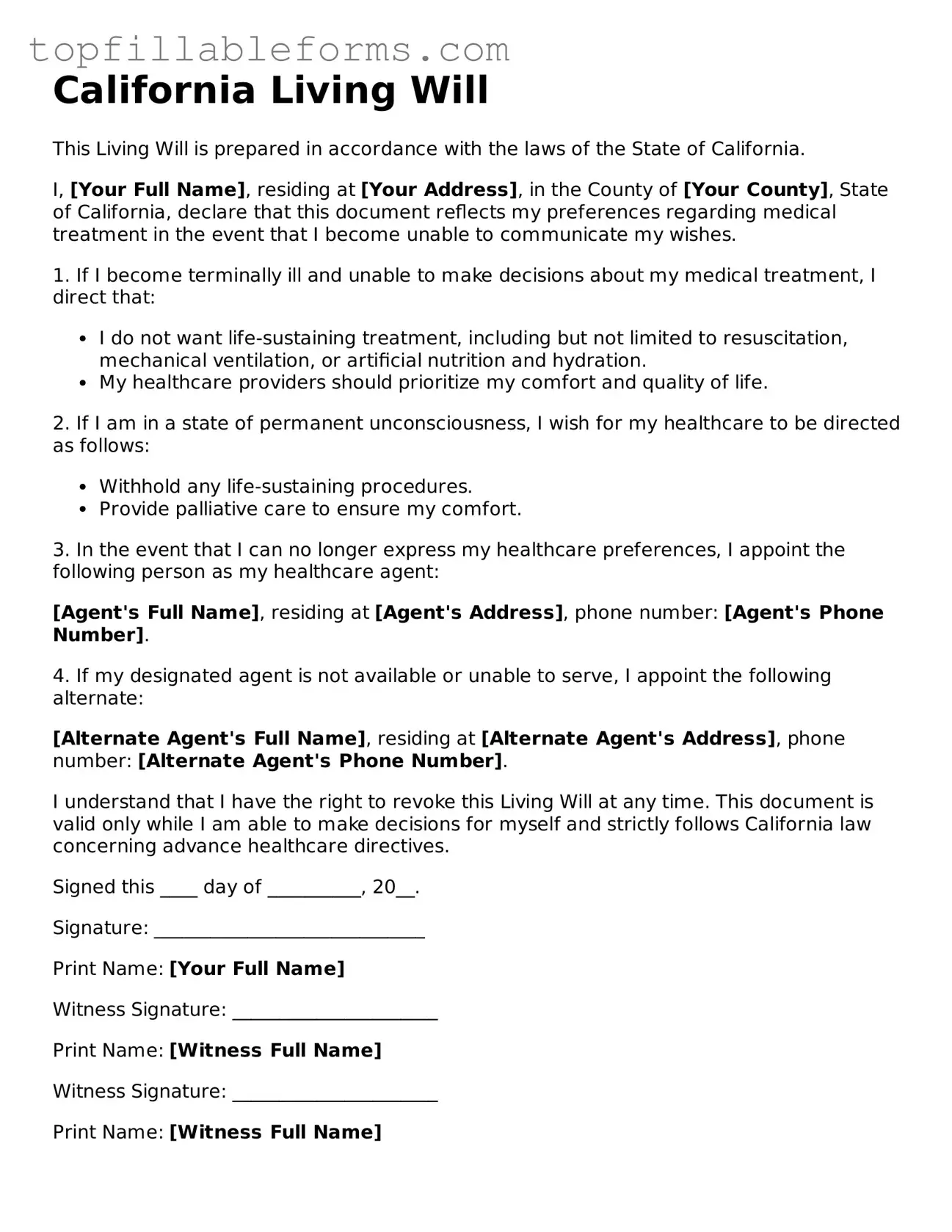Attorney-Verified Living Will Template for California
A California Living Will form is a legal document that allows individuals to outline their preferences for medical treatment in the event they become unable to communicate their wishes. This form ensures that your healthcare decisions are respected and followed, providing peace of mind for you and your loved ones. Understanding this important document is essential for making informed choices about your end-of-life care.
Open Living Will Editor Here

Attorney-Verified Living Will Template for California
Open Living Will Editor Here
Finish the form now and be done
Finish your Living Will online by editing, saving, and downloading fast.
Open Living Will Editor Here
or
▼ PDF File
